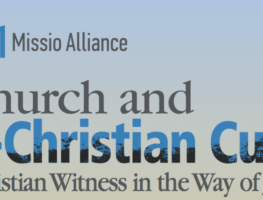“No, no, no. Praying . . . “
This simple, human post by a friend on Facebook was how I first learned about the Orlando shooting.
As I scrolled to see the reactions of other friends, I was strangely encouraged.
“My heart is breaking.”
“Lord, heal our brokenness.”
“Grieving . . .”
“Lord, have mercy. Christ have mercy.”
I was surprised, in a forum like Facebook, to find a place to mourn among friends. (Usually on days like this I avoid the finger pointing and political tirades of social media.)
Here’s why I found this outpouring of emotion especially meaningful:
Yes, there are things to talk about—gun policy, the LGBTQ community, terrorism, religious hate—and there is work to be done.
But first: lament. Before this is about Muslims or gay people or gun rights, this is about human beings—the shooter and the victims.
Here’s why lament is vitally important: lament strips us back to our human selves. Underneath all our vitriol and desperate efforts to explain and fix the crisis, there are human hearts that are saying “I’m sad” or “I’m scared” or “I’m confused.” When we jump straight to fixing and explaining, we miss the opportunity to be human. We continue the violence. When we jump straight to fixing and explaining, we miss the opportunity to be human. Click To Tweet
Lament feels like a waste of time but it’s directly connected to the problem we’re lamenting. Because underneath all the violence and anger that drives people to commit such atrocities there are human hearts that are saying “I’m sad” or “I’m scared” or “I’m confused.” When they jump straight to fixing, they also miss the opportunity to be human.
Although it’s odd, I’m rejoicing to hear lament. Because it’s a common thing for privileged westerners to jump to explaining and fixing. But when we, in the most powerful nation in the world, can lament, then at last we begin to remember what it is to be human.
We remember our need for a power beyond our own. So that when we do turn to our own intellect and action to respond to a crisis—and there is certainly a time for action—we will do so without that quick-fix mentality, that desperate effort to take matters into our own hands. And as we do, we’ll learn how lament overcomes our own terrorism.









Missio Alliance Comment Policy
The Missio Alliance Writing Collectives exist as a ministry of writing to resource theological practitioners for mission. From our Leading Voices to our regular Writing Team and those invited to publish with us as Community Voices, we are creating a space for thoughtful engagement of critical issues and questions facing the North American Church in God’s mission. This sort of thoughtful engagement is something that we seek to engender not only in our publishing, but in conversations that unfold as a result in the comment section of our articles.
Unfortunately, because of the relational distance introduced by online communication, “thoughtful engagement” and “comment sections” seldom go hand in hand. At the same time, censorship of comments by those who disagree with points made by authors, whose anger or limited perspective taints their words, or who simply feel the need to express their own opinion on a topic without any meaningful engagement with the article or comment in question can mask an important window into the true state of Christian discourse. As such, Missio Alliance sets forth the following suggestions for those who wish to engage in conversation around our writing:
1. Seek to understand the author’s intent.
If you disagree with something the an author said, consider framing your response as, “I hear you as saying _________. Am I understanding you correctly? If so, here’s why I disagree. _____________.
2. Seek to make your own voice heard.
We deeply desire and value the voice and perspective of our readers. However you may react to an article we publish or a fellow commenter, we encourage you to set forth that reaction is the most constructive way possible. Use your voice and perspective to move conversation forward rather than shut it down.
3. Share your story.
One of our favorite tenants is that “an enemy is someone whose story we haven’t heard.” Very often disagreements and rants are the result of people talking past rather than to one another. Everyone’s perspective is intimately bound up with their own stories – their contexts and experiences. We encourage you to couch your comments in whatever aspect of your own story might help others understand where you are coming from.
In view of those suggestions for shaping conversation on our site and in an effort to curate a hospitable space of open conversation, Missio Alliance may delete comments and/or ban users who show no regard for constructive engagement, especially those whose comments are easily construed as trolling, threatening, or abusive.